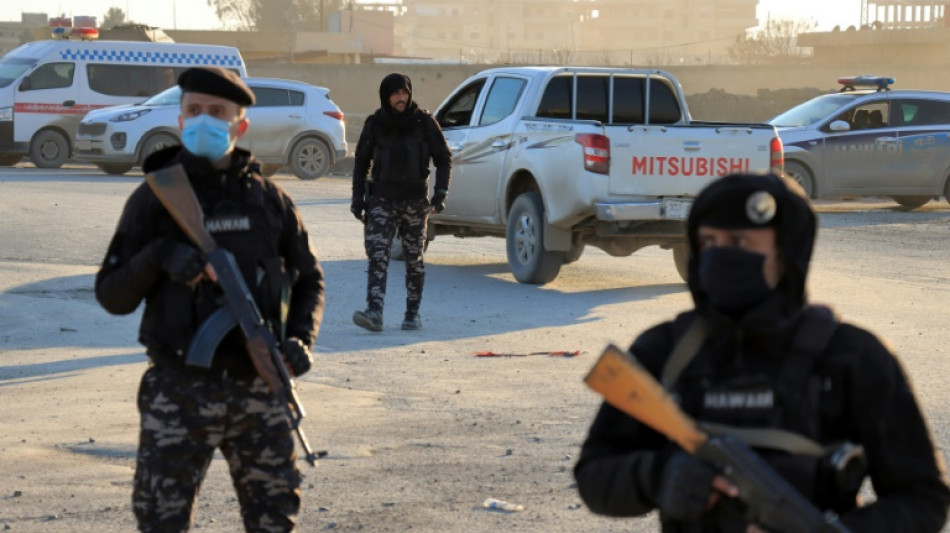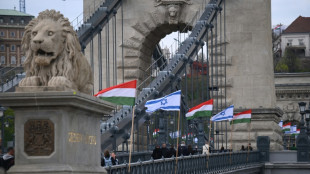

Kurds advance on jihadists in besieged Syria jail: monitor
Kurdish forces slowly advanced Wednesday inside a Syria prison where jihadists have been holed up for six days, in violence that has cost hundreds of lives, a war monitor said.
More than 100 jihadists of the Islamic State group last week attacked Ghwayran prison in the northeast Syrian city of Hasakeh, held by a semi-autonomous Kurdish administration.
The brazen assault on the Kurdish-run prison involved a double suicide bombing and saw the jihadists free fellow IS members.
It is considered the most sophisticated attack carried out by the group since it was territorially defeated in Syria nearly three years ago.
On Wednesday, the Kurdish-led Syrian Democratic Forces and allied fighters "carried out search operations inside prison blocks" and in areas surrounding the facility, where intermittent clashes had broken out overnight, said the Syrian Observatory for Human Rights.
US-backed Kurdish forces were "advancing slowly" inside the facility where jihadists were still holed up, said the Britain-based monitor.
Fighting in and around the prison since Thursday has killed 181 people, including 124 IS jihadists, 50 Kurdish fighters and seven civilians, according to the Observatory.
Kurdish forces have freed 32 prison staff, some of whom appeared in video footage that IS had shared on social media after launching the attack, the Observatory says.
Some of the jihadists have also reportedly surrendered.
Farhad Shami, who heads the SDF media office, told AFP on Tuesday that "more than 850 terrorist inmates, who either participated in the attack or the mutiny, have surrendered" since the onset of the assault.
Shami said Kurdish forces had called on the IS members to "safely surrender," but denied reports of negotiations with the jihadists.
Observatory head Rami Abdel Rahman on Wednesday said that a Syrian IS leader was negotiating with Kurdish forces to end the mutiny and secure medical care for wounded jihadists.
"This issue is an international problem," Abdulkarim Omar, head of foreign relations in the Kurdish semi-autonomous administration, told AFP on Wednesday.
"We cannot face it alone."
He called on the international community to "support the autonomous administration to improve security and humanitarian conditions for inmates in detention centres and for those in overcrowded camps."
IS's self-declared caliphate, established from 2014, once stretched across vast parts of Syria and Iraq and administered millions of inhabitants.
A long and deadly military fightback led by Syrian and Iraqi forces with backing from the United States and other powers eventually defeated the jihadist proto-state in March 2019.
F.Lecce--IM



